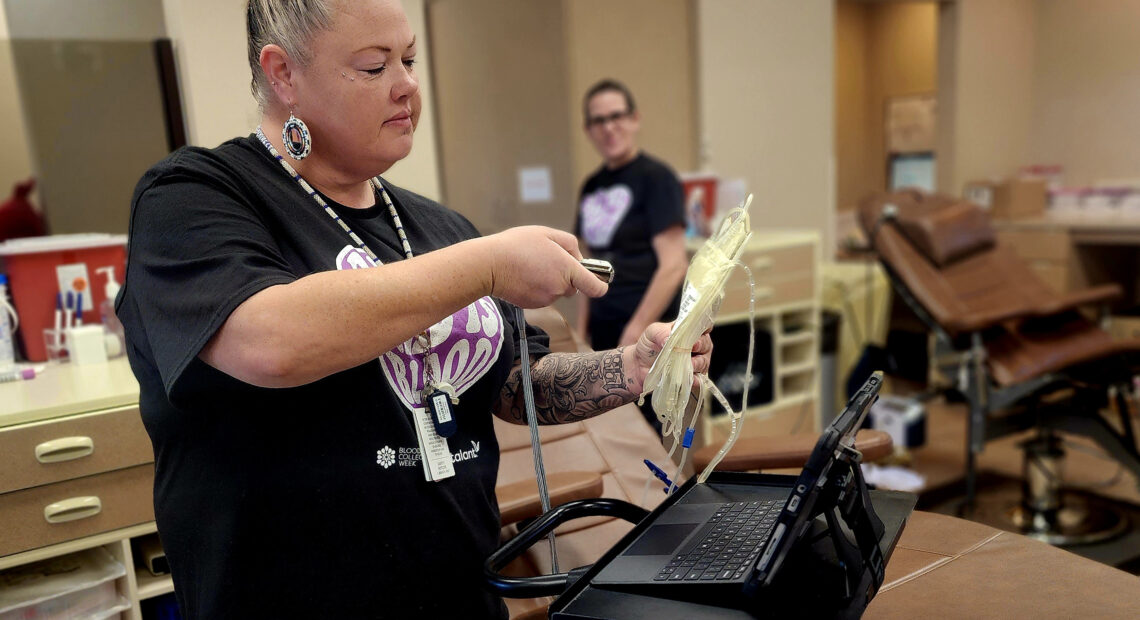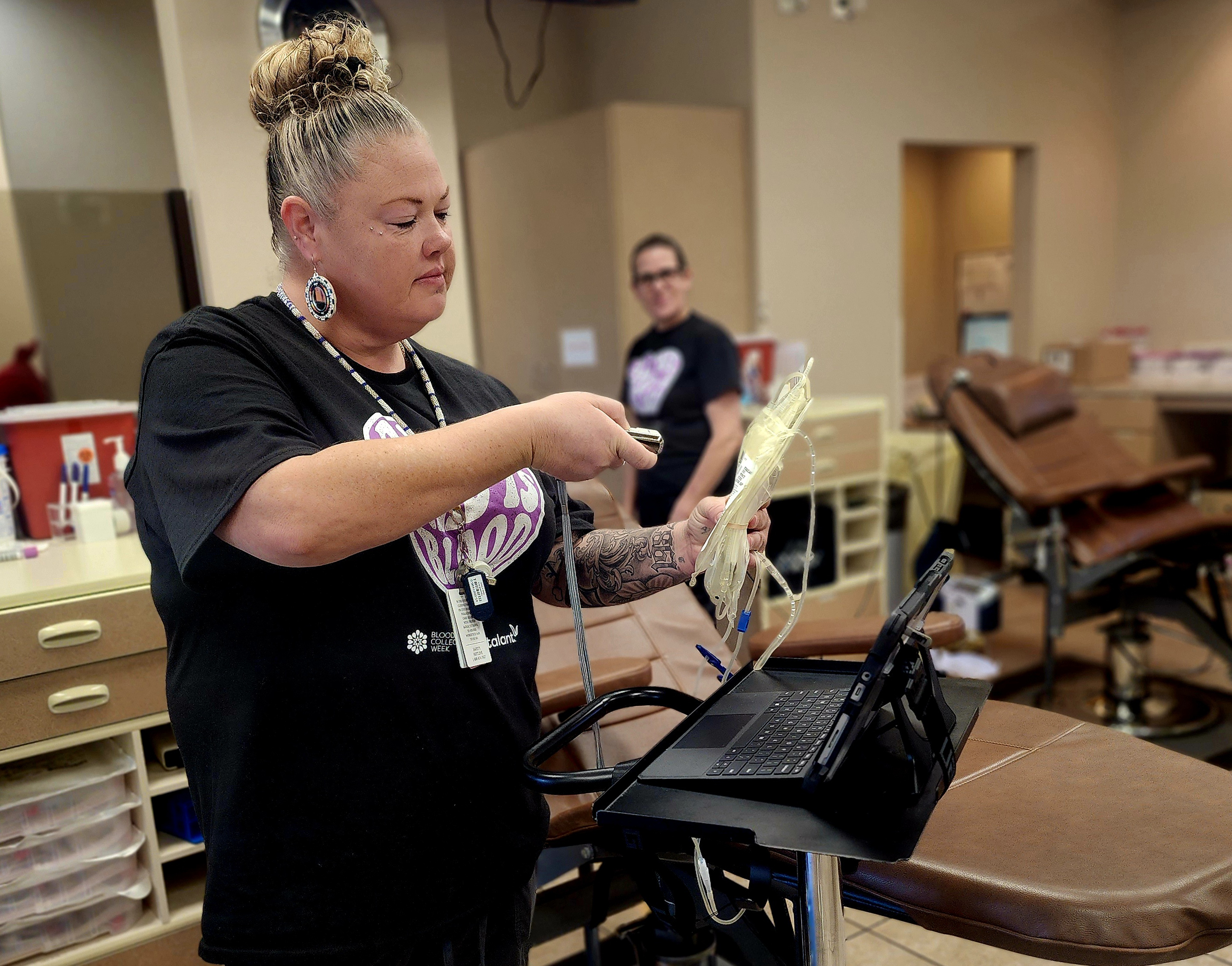
Blood banks in need of donations
Listen
(Runtime 0:57)
Read
Blood banks nationwide are facing dangerously low supplies.
Erin Baker is a donor recruitment manager at Vitalant, which operates blood banks in the Northwest, including in Lewiston and Spokane. Most blood banks have more trouble supplying blood in the holiday season, she said, but this year, that challenge is starting early.
“To be struggling this early is definitely showing that we can expect the next couple of months to stay the same if we don’t get people motivated to come and donate,” Baker said.
Those shortages are worse in part due to an aging donor base, she said. Though there’s not an upper age limit, as people get older they tend to face more health issues and be on more medications that limit their ability to donate.
In the Northwest region, which includes Idaho, Washington and parts of Montana, Vitalant saw about 100,000 donors in 2010, but those numbers dwindled over the years, Baker said. This year, they’ve had around 21,000 donors.
Most healthy adults are eligible to donate blood, with some exceptions including people on certain medications, people at risk for HIV and people with cancer.
The pandemic also limited the ability for blood banks to do outreach to new donors, Baker said.
“Especially with COVID, and not being able to go to high schools and colleges, which is usually where people start donating,” Baker said. “We’ve missed that whole generation of people over those five years.”
Shortages are especially severe for types O and Rh negative blood and platelets.
Baker said often, people donate once and don’t return. Blood banks rely on regular donations to provide blood for people, including trauma patients, those with cancer or heart disease, some pregnant women and other groups.
Platelet donations are especially important for groups like cancer patients, said Kirsten Alcorn, Co-Chief Medical Officer at Bloodworks Northwest. Platelet donations also only last about a week.
“Many cancer patients need platelets, sometimes as frequently as every single day,” Alcorn said. “So when there’s any kind of lapse in the donors showing up or not showing up, it has a huge effect on patients who need their platelets regularly.”
Baker said some people who were previously deferred from donating blood may now be eligible based on updated guidelines.
I would recommend if you’ve been told you’re unable to donate for whatever reason, to contact us and just double check that that’s still in place,” she said. “Some common things are tattoos and piercings, and the regulations on those have changed.”
Donating three to four times a year can make a significant impact on blood supplies, Alcorn said. Platelets can be donated even more frequently, about once a month.
“If you donated platelets once a month, that would be a true and noticeable boost in the platelet supply for all the patients who need it,” Alcorn said.
Blood donation is one of the easiest ways to save a life, Baker said, and there is no alternative to human blood. Many blood banks also have volunteer options where people who are ineligible to donate can help out.
Blood banks in the Northwest include Vitalant, Cascade Regional Blood Services, Bloodworks Northwest and the American Red Cross.
















